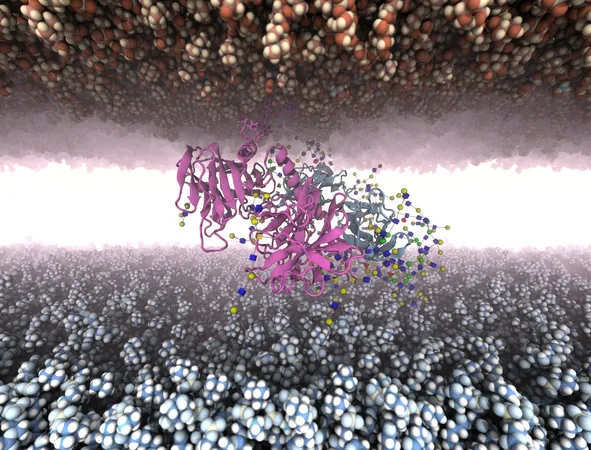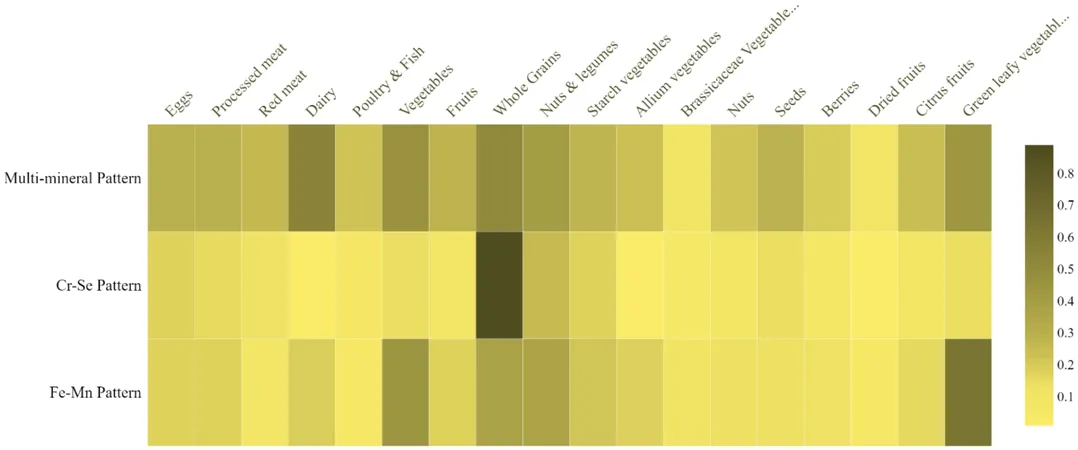
Groundbreaking Study Unlocks Secrets of Chagas Parasite Cell Invasion: A Game Changer in Global Health
2025-03-29
Author: Ming
In a remarkable breakthrough, researchers from Auburn University, in partnership with Brazil's renowned Oswaldo Cruz Foundation (FIOCRUZ), have unveiled critical insights into how the Chagas Disease parasite invades human cells. Published in the prestigious journal Biochemistry, this study represents a significant advancement in the fight against the neglected tropical disease.
Chagas Disease, caused by the Trypanosoma cruzi parasite, has traditionally been confined to Latin America. However, due to increased international travel and migration, it is emerging as a serious health threat globally, making its way into regions such as the United States and Europe. Dr. Bernardi, the study's lead researcher, warns, "The disease's subtle early symptoms often lead to underdiagnosis in these areas, making it a covert risk."
Utilizing cutting-edge molecular dynamics simulations, the research explored the essential interaction between the parasite's protein gp82 and the human receptor LAMP2. This interaction is critical for the parasite to penetrate human cells. The study is groundbreaking as it provides an atomic-level model of this interaction, revealing new potential targets for drug development aimed at interrupting the infection process.
"This research transcends mere scientific discovery; it addresses a silent epidemic with real-world consequences," Dr. Bernardi stated. Chagas Disease impacts millions and burdens public health systems, particularly in Latin America. Given its spread to the US and Europe, where data on its prevalence is limited, there is an urgent need for enhanced surveillance and focused research efforts.
The collaboration with FIOCRUZ highlights a vital global initiative against Chagas Disease. Dr. Leal da Silva, co-author of the study and a professor at FIOCRUZ, emphasized the significance of merging advanced technology with decades of expertise in Chagas research. "This study paves the way to a deeper understanding of the molecular mechanisms behind Chagas Disease and is crucial for developing effective treatments," he noted.
Graduate student Raissa Rosa echoed this sentiment, stating, "Working together has been enlightening. Our combined efforts have allowed us to visualize the parasite-host interaction at an atomic level, shedding light on the mysteries that eluded us before."
This study also exemplifies the power of international research collaborations in addressing complex health challenges. "Chagas Disease has faced neglect for too long," Dr. Bernardi concluded. "But with the combined expertise of Auburn University and FIOCRUZ, we are making significant strides toward understanding and ultimately combating this disease."
As awareness grows and research efforts expand, the hope is to develop effective therapies that could save millions from the devastating effects of Chagas Disease. Stay tuned as more advancements in this crucial fight emerge, potentially changing the global approach to this hidden health threat!


 Brasil (PT)
Brasil (PT)
 Canada (EN)
Canada (EN)
 Chile (ES)
Chile (ES)
 Česko (CS)
Česko (CS)
 대한민국 (KO)
대한민국 (KO)
 España (ES)
España (ES)
 France (FR)
France (FR)
 Hong Kong (EN)
Hong Kong (EN)
 Italia (IT)
Italia (IT)
 日本 (JA)
日本 (JA)
 Magyarország (HU)
Magyarország (HU)
 Norge (NO)
Norge (NO)
 Polska (PL)
Polska (PL)
 Schweiz (DE)
Schweiz (DE)
 Singapore (EN)
Singapore (EN)
 Sverige (SV)
Sverige (SV)
 Suomi (FI)
Suomi (FI)
 Türkiye (TR)
Türkiye (TR)
 الإمارات العربية المتحدة (AR)
الإمارات العربية المتحدة (AR)